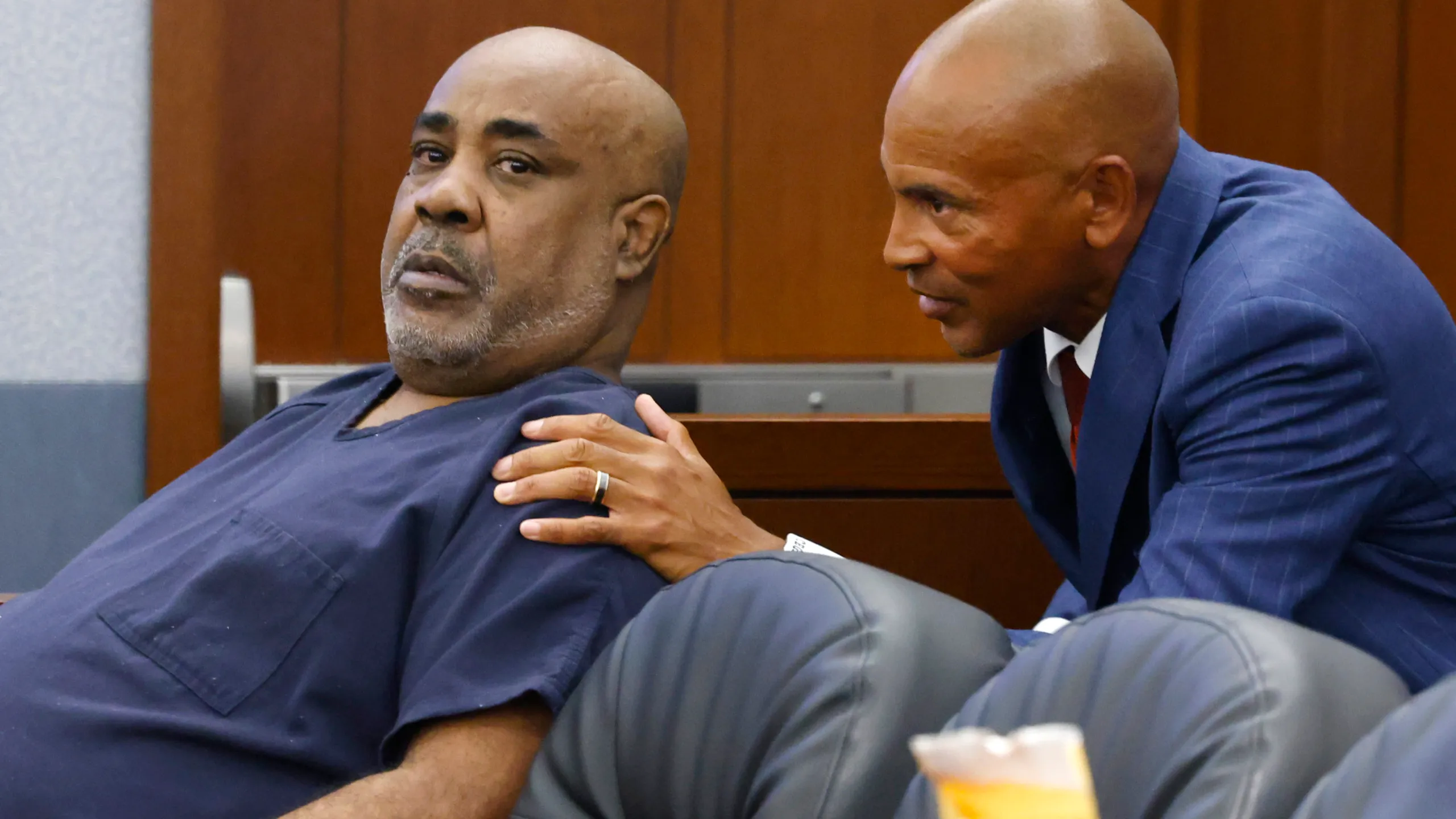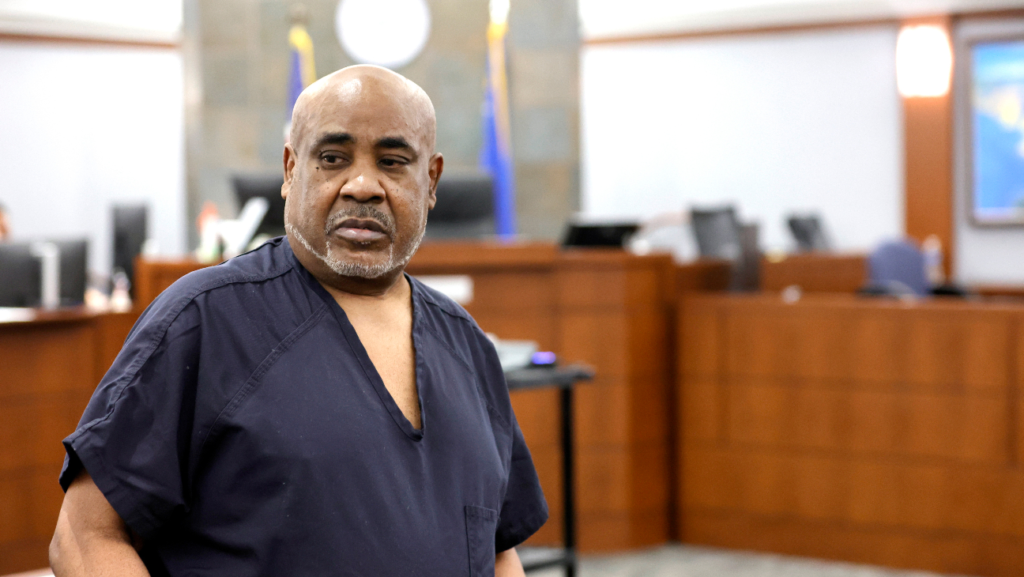Crime
Will Richard Jordan Finally Face Execution After 49 Years It’s Time Says Victim’s Family
After nearly five decades of appeals, delays, and courtroom battles, Richard Gerald Jordan may be executed on June 25 for the 1976 murder of Edwina de Gruy Marter—but will Mississippi go through with it?

In the haunting quiet of St. Louis Cemetery No. 3 in New Orleans, Edwina de Gruy Marter lies entombed alongside her family—a crypt filled with history, sorrow, and the chilling memory of a crime that stunned Mississippi nearly half a century ago.
Now, nearly 49 years later, the man responsible for her death, Richard Gerald Jordan, may finally face execution on June 25. But as the date nears, opposition is growing, pleas are pouring in—and justice remains painfully uncertain.
A Crime That Froze a State in Horror
It was January 12, 1976, when Edwina Marter, the 34-year-old wife of prominent Gulf National Bank executive Charles “Chuck” Marter, was kidnapped from their home by Jordan, a Vietnam War veteran turned desperate shipyard worker.
According to prosecutors, Jordan’s plot was rooted in financial despair. He impersonated a utility worker, kidnapped Edwina, and later murdered her on a remote road in DeSoto National Forest—even before receiving the $25,000 ransom from Chuck Marter.
Since then, Jordan has lived on Death Row at Parchman Prison, convicted of capital murder in 1976. But his journey through the American justice system has been anything but swift.
49 Years of Appeals, Yet No Doubt
In the decades since his conviction, Jordan has ridden a legal carousel—multiple trials, shifting legal precedents, and appeals at both the state and federal level.
Despite all the legal back-and-forth, one fact has remained unchanged: no court has overturned his guilt. There’s been no “Perry Mason moment,” no suppressed evidence or prosecutorial error unearthed.
There has been no evidence or moment in the appeals process that exonerates Jordan,” legal analysts agree. “This isn’t about doubt—it’s about delay.
Supporters Cite Military Past, Rehabilitation
Jordan’s family and supporters argue otherwise. They’ve produced videos and statements claiming his three tours in Vietnam—where he served as an Army helicopter door gunner—left him traumatized. They say he’s now a model inmate and a prison trusty, showing remorse and rehabilitation.
His defenders plead for clemency, highlighting his advanced age (79) poor health, and the millions spent on his prolonged incarceration. Some even argue that Jordan has become a symbol of the flaws in America’s death penalty system.
But What About Edwina
For the Marter family, however, time has not softened the wound.
My mother has been gone longer than Jordan’s entire adult life,” one family member said. “She’s been buried in that crypt since I was a child. That’s justice delayed—and justice denied.
Even Chuck Marter, now 89 years old, continues to carry the memory of that tragic day and the unanswered call for finality.
June 25 Will Mississippi Act
Mississippi is one of 27 U.S. states that still enforce the death penalty. Jordan’s scheduled execution would be the culmination of a 49-year saga that has tested the patience of both legal observers and grieving families.
But nothing is certain. Last-minute appeals or interventions could still delay the inevitable—again.
There may come a day Mississippi reconsiders capital punishment,” one columnist noted. “But June 25 is not that day. For Edwina, it’s long past time.
Crime
Man Accused in Tupac Shakur Killing Asks Judge to Exclude Critical Evidence
Duane “Keffe D” Davis’ legal team says prosecutors exaggerated his past to paint him as a dangerous figure, as the decades-old Tupac Shakur murder case takes a crucial legal turn.

Nearly three decades after the fatal shooting of Tupac Shakur, the only man ever charged in connection with the iconic rapper’s death is now asking a court to slam the brakes on what prosecutors can show a jury.
Duane Davis, widely known as Keffe D, has filed a motion seeking to suppress key evidence in the high-profile case, arguing that the judge who allowed the prosecution to move forward relied on what his attorneys call a “misleading portrait” of Davis as a violent drug dealer.
The filing, according to court documents, claims that prosecutors leaned heavily on Davis’ past statements and alleged criminal associations to justify the charges—without sufficiently tying those claims to the 1996 drive-by shooting that killed Shakur. His defense insists this framing unfairly prejudices the court and any potential jury before the case even reaches trial.
ALSO READ : “She Never Made It Out…” Albany House Fire Claims Woman’s Life as Family Pleads for Help to Bring Her Home
A case frozen in time — until now
Shakur was shot multiple times while riding in a BMW in Las Vegas after attending a boxing match in September 1996. He died six days later, at just 25, leaving behind a musical legacy that still shapes hip-hop culture worldwide. For years, the killing fueled conspiracy theories, documentaries, and books, but no criminal charges were filed—until 2023, when Davis was arrested.
Prosecutors allege Davis orchestrated the shooting from the front passenger seat of the car involved, a claim largely built on his own past interviews and memoir-like statements. Davis, however, has pleaded not guilty.
Defense pushes back: “Character assassination”
In the latest motion, Davis’ lawyers argue that the state’s narrative leans too heavily on character evidence—painting him as a longtime gang-affiliated drug trafficker—to convince the court he was capable of murder. They say this approach crosses a legal line.

According to the defense, the judge who previously upheld the charges relied on a version of Davis’ life that was “inflated and selectively presented,” potentially violating his right to a fair trial. They want certain statements, recordings, and references to his alleged criminal past excluded, contending that they are more prejudicial than probative.
Legal experts note that if the court agrees, it could significantly narrow what prosecutors are allowed to present, forcing them to rely on a much tighter set of facts directly linked to Shakur’s killing.
Prosecutors stand firm
The state has countered that Davis’ own words—given voluntarily over many years—are central to understanding his alleged role. They argue that context matters and that his background helps explain motive, opportunity, and credibility.
This clash sets the stage for what could be one of the most consequential pretrial rulings in the case. A decision in Davis’ favor would not end the prosecution, but it could weaken a case that already hinges on events nearly 30 years old.
Why this moment matters
For fans of Tupac Shakur, the case represents the closest the justice system has come to addressing one of music’s most haunting unsolved murders. For the courts, it’s a reminder of how fragile cold cases can be—especially when built on memories, interviews, and reputations shaped long after the crime itself.
As the judge weighs whether the evidence crosses the line from context to character assassination, one thing is clear: the outcome of this motion may determine whether the Tupac Shakur murder trial unfolds before a jury—or quietly unravels before it ever begins.
Crime
“A Misleading Portrait”: Man Accused in Tupac Shakur Killing Moves Court to Block Key Evidence…
Duane “Keffe D” Davis’ legal team says prosecutors exaggerated his past to paint him as a dangerous figure, as the decades-old Tupac Shakur murder case takes a crucial legal turn.

Nearly three decades after the fatal shooting of Tupac Shakur, the only man ever charged in connection with the iconic rapper’s death is now asking a court to slam the brakes on what prosecutors can show a jury.
Duane Davis, widely known as Keffe D, has filed a motion seeking to suppress key evidence in the high-profile case, arguing that the judge who allowed the prosecution to move forward relied on what his attorneys call a “misleading portrait” of Davis as a violent drug dealer.
The filing, according to court documents, claims that prosecutors leaned heavily on Davis’ past statements and alleged criminal associations to justify the charges—without sufficiently tying those claims to the 1996 drive-by shooting that killed Shakur. His defense insists this framing unfairly prejudices the court and any potential jury before the case even reaches trial.
ALSO READ : “She Never Made It Out…” Albany House Fire Claims Woman’s Life as Family Pleads for Help to Bring Her Home
A case frozen in time — until now
Shakur was shot multiple times while riding in a BMW in Las Vegas after attending a boxing match in September 1996. He died six days later, at just 25, leaving behind a musical legacy that still shapes hip-hop culture worldwide. For years, the killing fueled conspiracy theories, documentaries, and books, but no criminal charges were filed—until 2023, when Davis was arrested.
Prosecutors allege Davis orchestrated the shooting from the front passenger seat of the car involved, a claim largely built on his own past interviews and memoir-like statements. Davis, however, has pleaded not guilty.
Defense pushes back: “Character assassination”
In the latest motion, Davis’ lawyers argue that the state’s narrative leans too heavily on character evidence—painting him as a longtime gang-affiliated drug trafficker—to convince the court he was capable of murder. They say this approach crosses a legal line.

According to the defense, the judge who previously upheld the charges relied on a version of Davis’ life that was “inflated and selectively presented,” potentially violating his right to a fair trial. They want certain statements, recordings, and references to his alleged criminal past excluded, contending that they are more prejudicial than probative.
Legal experts note that if the court agrees, it could significantly narrow what prosecutors are allowed to present, forcing them to rely on a much tighter set of facts directly linked to Shakur’s killing.
Prosecutors stand firm
The state has countered that Davis’ own words—given voluntarily over many years—are central to understanding his alleged role. They argue that context matters and that his background helps explain motive, opportunity, and credibility.
This clash sets the stage for what could be one of the most consequential pretrial rulings in the case. A decision in Davis’ favor would not end the prosecution, but it could weaken a case that already hinges on events nearly 30 years old.
Why this moment matters
For fans of Tupac Shakur, the case represents the closest the justice system has come to addressing one of music’s most haunting unsolved murders. For the courts, it’s a reminder of how fragile cold cases can be—especially when built on memories, interviews, and reputations shaped long after the crime itself.
As the judge weighs whether the evidence crosses the line from context to character assassination, one thing is clear: the outcome of this motion may determine whether the Tupac Shakur murder trial unfolds before a jury—or quietly unravels before it ever begins.
Crime
“Police Firearms Discharge Is Rare…” Man Shot Dead After Armed Confrontation Following Crash in Thetford
Norfolk Police confirm independent investigation after officers fatally shoot suspect believed to be holding a handgun

A late-night road collision in eastern England escalated into a fatal police shooting on Sunday, leaving a man dead and a community searching for answers. According to Norfolk Police, the incident unfolded after a two-vehicle crash in Thetford, when officers encountered a man believed to be armed with a handgun.
Police were first alerted to the crash on London Road at approximately 8:25 pm GMT, following reports of a collision involving two vehicles. Officers arriving at the scene were told that one of the drivers had fled on foot, carrying what witnesses described as a firearm.
Armed response officers were deployed shortly afterward. The suspect was located a short distance from the crash site and was shot by police. Despite emergency medical efforts, he was pronounced dead at the scene.
Independent watchdog steps in
In line with UK protocol for fatal police shootings, the case has been formally referred to the Independent Office for Police Conduct (IOPC), which will independently assess the actions taken by officers.
Assistant Chief Constable David Buckley acknowledged the seriousness of the incident and the concern it may cause locally.
“We understand this incident will cause concern in the community,” Buckley said. “While our highly trained armed officers respond to hundreds of firearms-related calls each year, incidents where police discharge firearms are thankfully incredibly rare.”
He added that Norfolk Police are fully cooperating with investigators and have already committed to handing over body-worn camera footage and 999 emergency call recordings to ensure transparency.

Roads closed, questions remain
Following the shooting, the A11 road was closed in both directions between the Thetford Ranges and Brandon Road roundabouts, causing significant disruption to traffic in the area. Authorities have not yet indicated when the road will fully reopen.
Police also confirmed that no other suspects are being sought, suggesting the incident was contained to a single individual.
A rare but serious moment
Fatal police shootings remain uncommon in the United Kingdom, where most officers do not routinely carry firearms. When such incidents occur, they often spark intense public scrutiny and debate over the use of force, accountability, and public safety.
As the IOPC investigation progresses, further details are expected to emerge about what led officers to open fire and whether the perceived threat justified lethal force. Until then, officials say patience and due process are essential.
For residents of Thetford, the incident has cast a heavy shadow over what began as an ordinary Sunday evening — turning a routine traffic collision into a case that will now be examined at the highest levels of police oversight.
For more Update- DAILY GLOBAL DIARY
-

 Entertainment7 days ago
Entertainment7 days agoHe-Man Wears a Suit Now… Nicholas Galitzine’s ‘Masters of the Universe’ Trailer Drops a Shock Fans Didn’t See Coming
-

 Entertainment1 week ago
Entertainment1 week agoBrazil Eyes Oscar History Again… ‘The Secret Agent’ Scores Best Picture Nomination as Wagner Moura Stuns Hollywood
-

 Entertainment5 days ago
Entertainment5 days ago“Comedy Needs Courage Again…”: Judd Apatow Opens Up on Mel Brooks, Talking to Rob Reiner, and Why Studio Laughs Have Vanished
-

 Entertainment1 week ago
Entertainment1 week agoBox Office Shocker as Chris Pratt’s ‘Mercy’ Knocks ‘Avatar 3’ Off the Top but Nature Had Other Plans…
-

 Entertainment7 days ago
Entertainment7 days agoOscars Go Global in a Big Way as This Year’s Nominations Signal a New Era: ‘The Academy Is Finally Looking Beyond Hollywood…’
-

 Entertainment1 week ago
Entertainment1 week agoMichael Bay Makes a Power Move… Blockbuster Director Signs with CAA in a Deal That’s Turning Heads
-

 Entertainment7 days ago
Entertainment7 days ago“Dangerously Kinky… and Darkly Funny”: Olivia Wilde and Cooper Hoffman Push Boundaries in ‘I Want Your Sex’
-

 Entertainment1 week ago
Entertainment1 week agoFans Didn’t Expect This Look… Nicholas Galitzine’s Masters of the Universe Trailer Sparks Debate



















